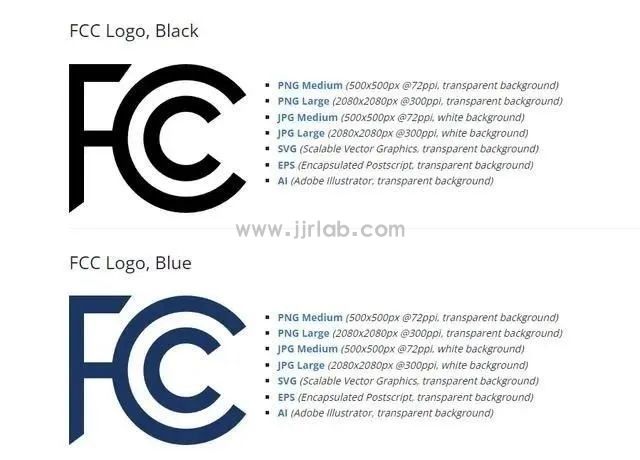
What is FCC ID Certification for Wireless Products?
fcc id Certificationis a certification regULated by the Federal Communications Commission (FCC)in the United States, primarily for electronic devices involving wireless communication. Its purpose is to ensure that wireless devices do not interfere with public telecommunication networks, while also guaranteeing electromagnetic compatibility (EMC) and electrical safety.

Introduction to fcc id certification
FCC IDis a unique identification number assigned to wireless devices that have passed FCC certification. This certification ensures that wireless products comply with relevant U.S. FCC regulations, mainly covering the following aspects:
- Radio Frequency Interference (RF):Ensures that wireless devices do not cause harmful interference to other devices or wireless communication.
- Electromagnetic Compatibility (EMC):Ensures that devices do not emit excessive electromagnetic radiation during operation.
- Electrical Safety:Ensures that devices do not pose electrical hazards to users during use.
Applicable Products for FCC ID Certification
FCC ID certification applies to all products involving wireless communication, including but not limited to:
- Wireless communication devices:Smartphones, tablets, Wi-Fi routers, Bluetooth devices, wireless headphones, remote controls, etc.
- Radio frequency devices:Radio transmitters, receivers, GPS devices, etc.
- Smart home devices:Smart speakers, smart locks, wireless sensors, etc.
- Electronic products:Any device with wireless communication functionality (e.g., Bluetooth, Wi-Fi, Zigbee, NFC) must apply for FCC ID certification.
Importance of FCC ID Certification
FCC ID certification is essential for products entering the U.S. market. Wireless devices without certification cannot be legally sold in the United States. Devices lacking an FCC ID or failing the relevant tests may face market bans, fines, or even recalls.
Main Requirements of FCC ID Certification
- Radio Frequency (RF) Performance:The wireless communication functions must meet FCC technical requirements, including transmission power and frequency range. RF emissions must remain within legal limits.
- Electromagnetic Compatibility (EMC):Devices must not produce excessive electromagnetic interference (EMI). emc testing ensures devices do not disrupt other electronics and can resist external electromagnetic interference.
- Electrical Safety:Devices must comply with electrical safety standards to prevent user hazards during normal use.
- Device labeling and Identification:Devices must display the FCC ID to demonstrate certification. Packaging typically includes the FCC ID and compliance statement.
Steps for FCC ID Certification
1. Determine if the device requires FCC ID:
All devices with RF functions (Wi-Fi, Bluetooth, Zigbee, NFC, etc.) need FCC ID certification.
2. Select an accREDited testing laboratory:
Devices must be tested for RF performance and EMC at accredited labs (e.g., JJR Laboratory in China), which must comply with ISO/IEC 17025and be FCC-approved.
3. Conduct product testing:
- RF testing:Ensure frequency, power, and modulation meet fcc standards.
- EMC testing:Ensure devices do not excessively interfere with other electronics.
- Safety testing:Ensure no electrical hazards for users.
4. Submit test reports and FCC ID application:
The lab provides test reports, which the manufacturer uses to apply to the FCC. The FCC reviews the reports and assigns a unique FCC ID for compliant devices.
5. Obtain FCC ID:
Once approved, the device receives a unique FCC ID, which can be displayed on the device and its packaging. The FCC ID usually includes the manufacturer identifier and device model.
6. Labeling and record-keeping:
The device must clearly display the FCC ID to prove compliance.
7. Ongoing compliance:
Manufacturers must ensure continuous compliance. Any changes in design, functionality, or technical parameters may require retesting and updating the FCC ID.
Common Questions about FCC ID Certification
1. Relationship between FCC ID and other certifications (e.g., CE):
FCC ID is for the U.S. market, ensuring wireless communication and emc compliance. CE certification is for the European market, ensuring safety, health, and environmental compliance. Standards and procedures differ.
2. Does FCC ID need regular updates?
FCC ID is usually valid long-term. However, technical changes (e.g., frequency or transmission power) require recertification.
3. Does FCC certification cover all wireless devices?
Not all wireless devices require FCC ID. It primarily applies to devices that transmit signals via radio waves. Purely wired devices or those without RF functions do not need FCC ID certification.
FCC ID certification is a key compliance measure in the U.S. for devices involving wireless communication. Obtaining FCC ID indicates that a device meets FCC requirements for RF performance, EMC, and electrical safety, allowing it to be legally sold in the U.S. Manufacturers must perform RF, EMC, and safety testing at accredited labs, submit reports and applications, and obtain the FCC ID to demonstrate compliance.
Email:hello@jjrlab.com
Write your message here and send it to us
 European Toy Safety Standard EN 71-20:2025
European Toy Safety Standard EN 71-20:2025
 EN 18031 Certification for Connected Devices on Am
EN 18031 Certification for Connected Devices on Am
 Compliance Guide for Portable Batteries on Amazon
Compliance Guide for Portable Batteries on Amazon
 2026 EU SVHC Candidate List (253 Substances)
2026 EU SVHC Candidate List (253 Substances)
 LFGB Certification Cost and Timeline Guide
LFGB Certification Cost and Timeline Guide
 Bluetooth FCC Test Report
Bluetooth FCC Test Report
 Is FCC Testing Required?
Is FCC Testing Required?
 Where to Find FCC Test Reports
Where to Find FCC Test Reports
Leave us a message
24-hour online customer service at any time to respond, so that you worry!




